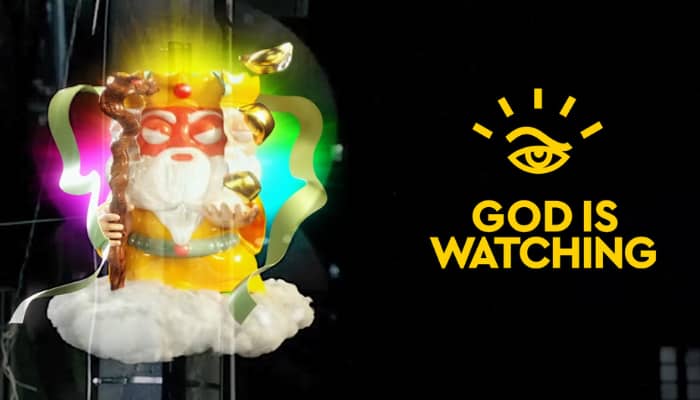Taipei, Taiwan – Waste management in Taiwan is known for its regular trash collection schedules, where people have to carry their trash and wait at a designated area until the garbage truck passes by their area to collect the trash. If you miss the truck, you have no choice but to take the trash back home and try again tomorrow.
However, in recent years, the country has struggled to deal with those who illegally throw their garbage on street curbs. This is despite repeated reminders to the local population on penalties for littering. With that in mind, how can the government impose these regulations?
In response, the BaoXing Council in New Taipei City has launched a campaign that merges artificial intelligence (AI) and the local belief in Taoism to deter these illegal trash dumpers–all thanks to a rather tongue-in-cheek approach to a surveillance system.
Conceptualised alongside Leo Burnett Taiwan and Digitas Taiwan, the campaign uses a combination of surveillance cameras and a 3D holographic display, which then displays a 3D model of Tudigong, God of Land. Tudigong is respected like a family elder in Taiwan, making him the perfect God, stern yet friendly, to remind people not to dump their garbage illegally.
Kevin Yang, CEO and CCO at Leo Burnett Taiwan, explains, “Most people don’t dump with bad intentions, so creating a little holographic god was the silliest way we could think of to show BaoXing Council how creativity and technology can make our neighbourhoods better.”
Within three months of the campaign implementation, it garnered so much attention that illegal waste dropped by 73%. They are now looking to roll out this technology to more neighbourhoods in New Taipei City in future.

